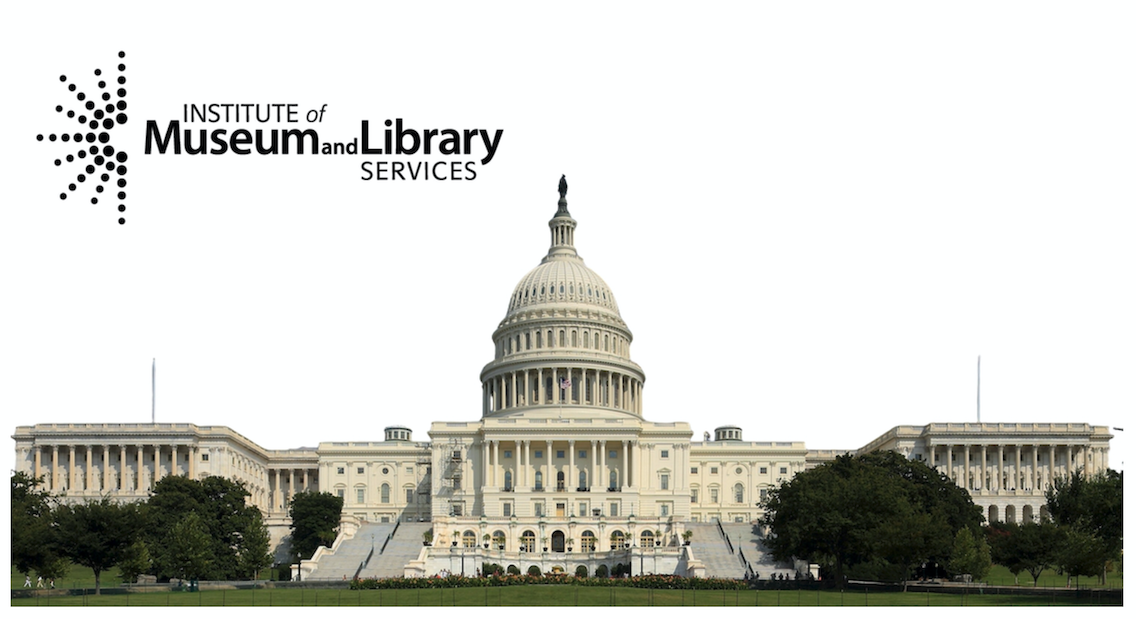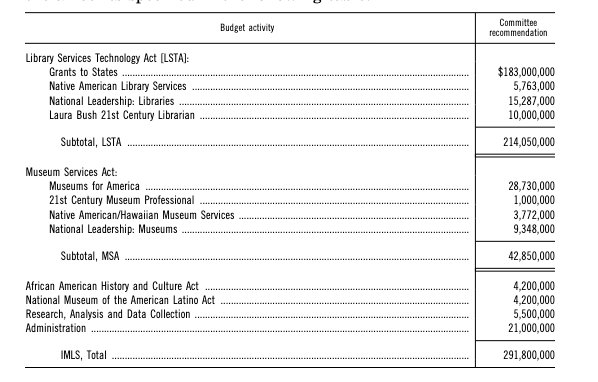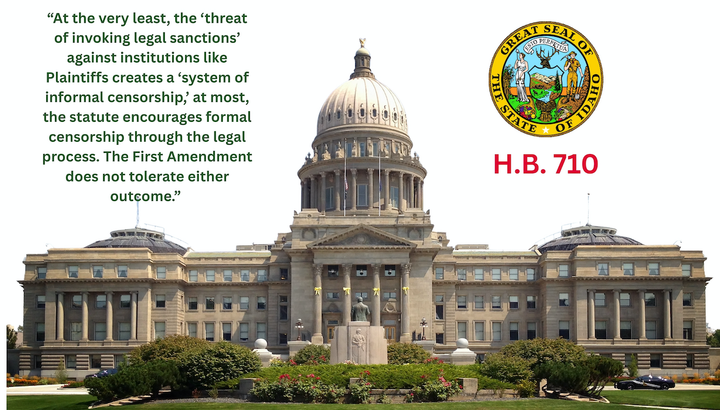Despite Trump Efforts, Congress Looks to Fund the IMLS
With a budget deadline looming, Congress appears poised to fund the IMLS in fiscal year 2026, even as the Trump administration seeks to shutter the agency by executive order.

With the House of Representatives back in session after a bit of an extended summer vacation, the pressure is on to make progress on a budget for fiscal year 2026, with a September 30 deadline fast approaching. And in a promising sign, Congress appears poised to continue support for federal libraries and to fund the IMLS (Institute of Museum and Library Services), despite the Trump administration's efforts to see the agency shut down.
On September 2, a House subcommittee for Labor, Health and Human Services, Education and other related agencies, which includes oversight of the IMLS, passed an initial budget proposal, which includes a recommendation to fund the IMLS at $291.8 million.
That figure represents a $3 million cut to the IMLS over funding levels set in a continuing resolution for FY 2025. But given the administration’s unilateral efforts to dismantle the agency by executive order and its recent budget blueprint that proposed the agency’s permanent elimination, library advocates say it’s a positive sign that there is any funding at all for libraries and the IMLS.
The move comes after the senate passed its initial budget proposal last week with the same $291.8 million in funding for the IMLS.
While further details are still to come, both the House and Senate also proposed a very modest increase—about $400,000—for state grants to libraries under the Library Services and Technology Act (LSTA).

Meanwhile, the 2018 Museum and Library Services Act (MLSA)—the legislation through which most federal library support derives—is also up for reauthorization as of October 1. But ALA Deputy Director for Public Policy and Advocacy Kevin Maher told Words & Money that Congress can continue to fund libraries and the IMLS even if the MLSA authorization expires.
“Technically, that doesn't really change anything,” he says, noting that many federal programs operate with expired authorizations. “As long as Congress continues to fund these programs they can continue. It’s better to have an authorization. But the expiration doesn't really change things as long as there is still support for libraries within Congress and they continue to fund the program.”
Maher, who has worked on legislative affairs for ALA since the 1980s, praised the work of library advocates in contacting their representatives in what he agreed was an unprecedented budget battle, given the administration’s efforts to unilaterally eliminate huge swaths of the federal workforce. He notes that library funding has traditionally enjoyed bipartisan support, and that advocates were able to defeat efforts to end the IMLS during Trump's first term.
Furthermore, despite the administration’s current efforts, library support in Congress remains solid, Maher added, with an increase in the number of lawmakers signing on to this year's ‘Dear Appropriator’ letters ahead of the the FY 2026 budget process, an important sign of support for funding measures.
Maher also said he expects another Continuing Resolution to be crafted in the coming weeks rather than a budget, given the complicated budget process and the short timeline. And he urged library advocates to stay engaged, noting that the budget process is still in its early stages.
Keeping the IMLS fully funded would be an important win for libraries, although, Maher conceded, there are no guarantees about what programs would be funded should the IMLS be spared. In taking over the IMLS in March, IMLS acting director Keith E. Sonderling suggested that the agency could be used to remake libraries and museums in Trump's MAGA image.
“We will revitalize IMLS and restore a focus on patriotism, ensuring we preserve our country’s core values, promote American exceptionalism and cultivate love of country in future generations,” Sonderling said in an official statement following his swearing in, in which he also committed to “steering this organization in lockstep with this Administration.” In a subsequent Instagram post, Sonderling also pledged to “restore a focus on American exceptionalism in our museums and libraries.”
The budget battle in Congress also comes as the courts consider the president’s efforts to shutter the IMLS through a March 14 executive order.
In an August 22 filing, Attorneys for 21 states asked federal judge John J. McConnell in Rhode Island to permanently block the Trump Administration’s efforts to dismantle the IMLS, after winning a preliminary injunction in May that ordered IMLS employees back to work as well as the fulfillment of grants awarded to entities in the 21 plaintiff states. That decision is currently on appeal.
In an amicus brief filed this week, ALA joined with several other groups urging the First Circuit to uphold McConnell’s injunction.
“IMLS is indispensable for libraries, museums, and cultural workers, as well as the millions of people we serve every day,” ALA President Sam Helmick said in a statement. “We hope the court will strike down the attempt to dismantle IMLS, which the law directs to provide crucial funding, research and resources that advance our shared missions: stewarding our history, strengthening access to lifelong learning, seeding opportunity and sparking innovation for all Americans."
In addition, the ALA is litigating a parallel case seeking to save the IMLS in a Washington D.C. federal court, with its own motion for summary judgment filed on September 5.


